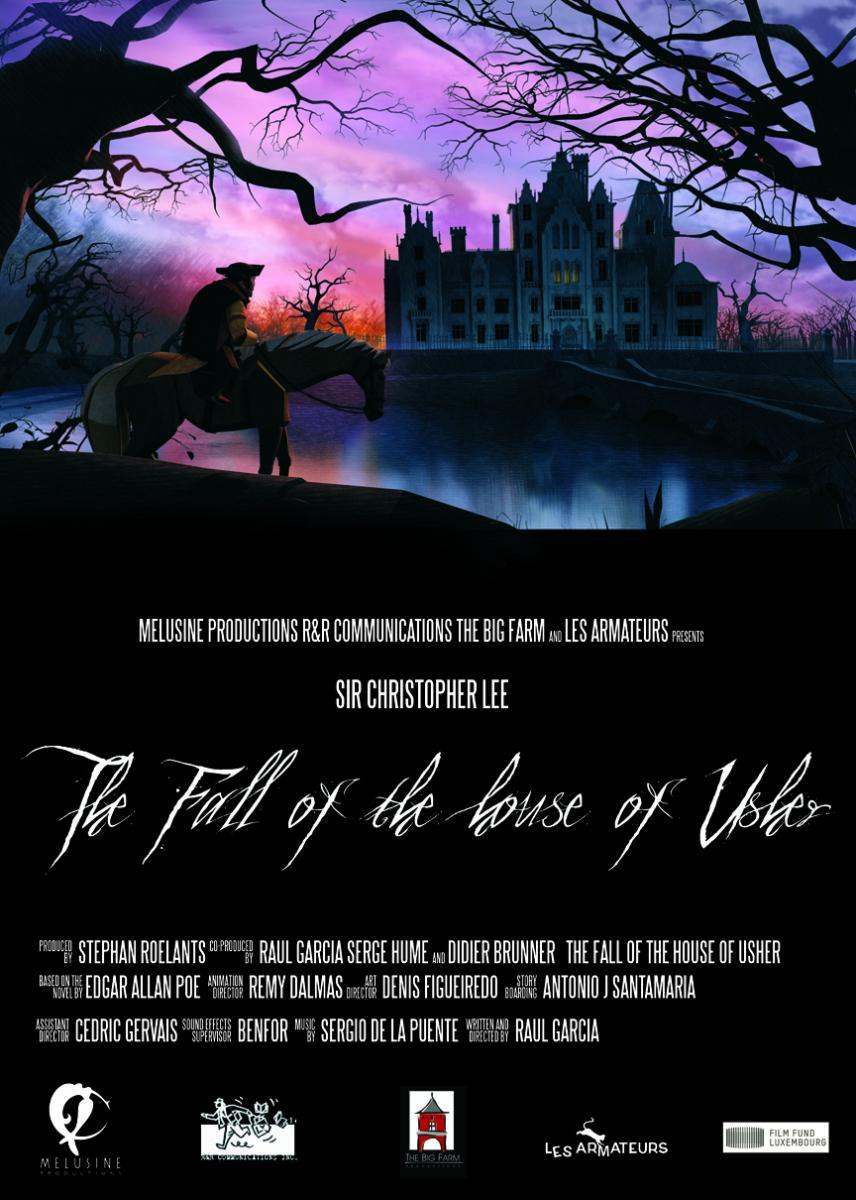Table Of Content

For something of this nature I had indeed been prepared, no less by his letter, than by reminiscences of certain boyish traits, and by conclusions deduced from his peculiar physical conformation and temperament. The windows were long, narrow, and pointed, and at so vast a distance from the black oaken floor as to be altogether inaccessible from within. Feeble gleams of encrimsoned light made their way through the trellissed panes, and served to render sufficiently distinct the more prominent objects around; the eye, however, struggled in vain to reach the remoter angles of the chamber, or the recesses of the vaulted and fretted ceiling. Many books and musical instruments lay scattered about, but failed to give any vitality to the scene. I have said that the sole effect of my somewhat childish experiment — that of looking down within the tarn — had been to deepen the first singular impression. There can be no doubt that the consciousness of the rapid increase of my superstition — for why should I not so term it?
Storyline
The story features numerous allusions to other works of literature, including the poems “The Haunted Palace” and “Mad Trist” by Sir Launcelot Canning. Poe composed them himself and then fictitiously attributed them to other sources. Both poems parallel and thus predict the plot line of “The Fall of the House of Usher.” “Mad Trist,” which is about the forceful entrance of Ethelred into the dwelling of a hermit, mirrors the simultaneous escape of Madeline from her tomb. “Mad Trist” spookily crosses literary borders, as though Roderick’s obsession with these poems ushers their narratives into his own domain and brings them to life. The narrator is mysteriously trapped by the lure of Roderick’s attraction, and he cannot escape until the house of Usher collapses completely.
Episodes
By the end of the episode, Freddie seems to move past angry husband into something sinister. When he tells Lenore, “We’ve almost got her,” it sounds much more ominous than simply getting her home to recover. Ostensibly, Madeline’s (here played by Willa Fitzgerald) meeting with the brutish Rufus Griswold (Michael Trucco) is about setting Fortunato up with an ahead-of-its-time computer system –– but, as she informs Annabel (Katie Parker) later, it is really about sizing the enemy up. The conversation turns bad once Rufus makes it clear he’s really only interested in sleeping with Madeline, and she makes it clear that is never going to happen. Rufus is angry and cruel in his attempts to humiliate her; this includes revealing that the twins are the illegitimate children of her mother, Eliza (Annabeth Gish) and Longfellow (Robert Longstreet). Long considered Edgar Allan Poe‘s masterpiece, “The Fall of the House of Usher” continues to intrigue new generations of readers.
Analysis of Edgar Allan Poe’s The Fall of the House of Usher
Very soon we understand that, whatever else it may mean, the house is a metaphor for the Usher family itself and that if the house is seriously flawed, so are its occupants. ‘The Fall of the House of Usher’ is an 1839 short story by Edgar Allan Poe ( ), a pioneer of the short story and a writer who arguably unleashed the full psychological potential of the Gothic horror genre. The story concerns the narrator’s visit to a strange mansion owned by his childhood friend, who is behaving increasingly oddly as he and his twin sister dwell within the ‘melancholy’ atmosphere of the house. The antique volume which I had taken up was the “Mad Trist” of Sir Launcelot Canning; but I had called it a favorite of Usher’s more in sad jest than in earnest; for, in truth, there is little in its uncouth and unimaginative prolixity which could have had interest for the lofty and spiritual ideality of my friend. Could I have judged, indeed, by the wild overstrained air of vivacity with which he harkened, or apparently harkened, to the words of the tale, I might well have congratulated myself upon the success of my design.
Log in or Create account
Review 'The Fall of the House of Usher' is a Halloween 'Christmas Story' - The Washington Post
Review 'The Fall of the House of Usher' is a Halloween 'Christmas Story'.
Posted: Wed, 11 Oct 2023 07:00:00 GMT [source]
In spite of this disadvantage, Madeline possesses the power in the story, almost superhuman at times, as when she breaks out of her tomb. Some scholars have argued that Madeline does not even exist, reducing her to a shared figment Roderick’s and the narrator’s imaginations. But Madeline proves central to the symmetrical and claustrophobic logic of the tale.
Characters cannot move and act freely in the house because of its structure, so it assumes a monstrous character of its own—the Gothic mastermind that controls the fate of its inhabitants. Poe, creates confusion between the living things and inanimate objects by doubling the physical house of Usher with the genetic family line of the Usher family, which he refers to as the house of Usher. Poe employs the word “house” metaphorically, but he also describes a real house. Not only does the narrator get trapped inside the mansion, but we learn also that this confinement describes the biological fate of the Usher family.

Madeline stifles Roderick by preventing him from seeing himself as essentially different from her. Having deposited our mournful burden upon tressels within this region of horror, we partially turned aside the yet unscrewed lid of the coffin, and looked upon the face of the tenant. A striking similitude between the brother and sister now first arrested my attention; and Usher, divining, perhaps, my thoughts, murmured out some few words from which I learned that the deceased and himself had been twins, and that sympathies of a scarcely intelligible nature had always existed between them. Our glances, however, rested not long upon the dead — for we could not regard her unawed. The disease which had thus entombed the lady in the maturity of youth, had left, as usual in all maladies of a strictly cataleptical character, the mockery of a faint blush upon the bosom and the face, and that suspiciously lingering smile upon the lip which is so terrible in death.
Once Roderick and Madeline were the only ones left in the bar after a long night of drinking, Verna revealed to the twins that she knew what they had done. But, if they agreed to her terms, she could guarantee that they would not only get away with Rufus' murder but also rise to control Fortunato's billion-dollar painkiller empire and never be convicted of a single crime. The final paragraph supports this view in that the actions occur during the "full blood-red moon," a time during which vampires are able to prey upon fresh victims.
Further, Roderick believes that his fate is connected to the family mansion. One of the phantasmagoric conceptions of my friend, partaking not so rigidly of the spirit of abstraction, may be shadowed forth, although feebly, in words. A small picture presented the interior of an immensely long and rectangular vault or tunnel, with low walls, smooth, white, and without interruption or device.
Roderick wrote that he was feeling physically and emotionally ill, so the narrator is rushing to his assistance. The narrator mentions that the Usher family, though an ancient clan, has never flourished. Only one member of the Usher family has survived from generation to generation, thereby forming a direct line of descent without any outside branches. The Usher family has become so identified with its estate that the peasantry confuses the inhabitants with their home. An unnamed narrator approaches the house of Usher on a “dull, dark, and soundless day.” This house—the estate of his boyhood friend, Roderick Usher—is gloomy and mysterious.
Outside the castle, a storm is raging and inside the castle, there are mysterious rooms where windows suddenly whisk open, blowing out candles; one hears creaking and moaning sounds and sees the living corpse of the Lady Madeline. This, then, is the gothic and these are its trappings; one should realize by now that these are all basic effects that can be found in any modern Alfred Hitchcock-type of horror film, any ghost movie, or in any of the many movies about Count Dracula. Here is the genesis of this type of story, created almost one hundred and fifty years ago in plain, no-nonsense America, a new nation not even sixty years old. The narrator also realizes suddenly that Roderick and Madeline were twins. During one sleepless night, the narrator reads aloud to Usher as eerie sounds are heard throughout the mansion.
Soon, Roderick posits his theory that the house itself is unhealthy, just as the narrator supposes at the beginning of the story. It was thus that he spoke of the object of my visit, of his earnest desire to see me, and of the solace he expected me to afford him. He entered, at some length, into what he conceived to be the nature of his malady. It was, he said, a constitutional and a family evil, and one for which he despaired to find a remedy — a mere nervous affection, he immediately added, which would undoubtedly soon pass off.
The Fall of the House of Usher, supernatural horror story by Edgar Allan Poe, published in Burton’s Gentleman’s Magazine in 1839 and issued in Poe’s Tales of the Grotesque and Arabesque (1840). A television adaptation was produced by ATV for the ITV network in 1966 for the horror anthology series Mystery and Imagination.
In contrast, Lady Madeline, as many critics have pointed out, possesses a superhuman will to live. She is the masculine force which survives being buried alive and is able, by using almost supernatural strength, to force her way out and escape from her entombment in the vaults, and then despite being drained of strength, as evidenced by the blood on her shroud, she is able to find her brother and fall upon him. Like so many of Poe's stories, the setting here is inside a closed environment. From the time the unnamed narrator enters the House of Usher until the end of the story when he flees in terror, the entire story is boxed within the confines of the gloomy rooms on an oppressive autumn day where every object and sound is attenuated to the over-refined and over-developed sensitivities of Roderick Usher. When Poe began writing short stories, the short story was not generally regarded as serious literature. Poe’s writing helped elevate the genre from a position of critical neglect to an art form.
Poe was often dismissed by contemporary literary critics because of the unusual content and brevity of his stories. When his work was critically evaluated, it was condemned for its tendencies toward Romanticism. The writers and critics of Poe’s day rejected many of that movement’s core tenets, including its emphasis on the emotions and the experience of the sublime. Accordingly, commentaries on social injustice, morality, and utilitarianism proliferated in the mid-19th century. Poe conceived of his writing as a response to the literary conventions of this period. In “The Fall of the House of Usher,” he deliberately subverts convention by rejecting the typical practices of preaching or moralizing and instead focusing on affect and unity of atmosphere.

No comments:
Post a Comment